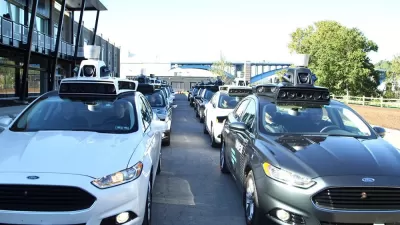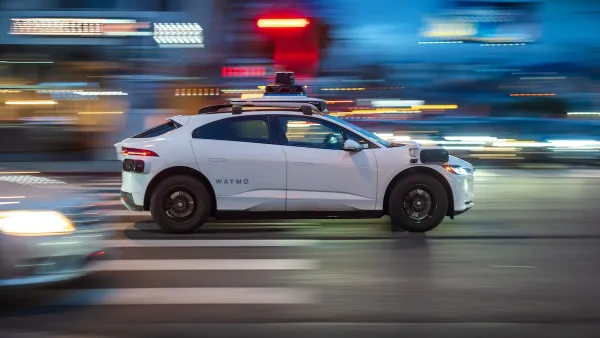California regulators approved new rules for autonomous vehicles, shifting the required human backup from behind the wheel to a remote location.

"Self-driving cars with no human backup behind the wheel will be legal on California roads for testing and transporting the public starting April 2," reports Ethan Baron. "Robot cars have been allowed on the state’s public roads for testing since September 2014, but a safety driver behind the wheel has been required."
The cars will still have a backup—a remotely located human described as a "remote operator" to monitor the car. According to a separate article by Johana Bhuiyan, remote operators "must also be able to communicate with law enforcement as well as the passengers in the event of an accident."
Bhuiyan also reports that the new rules for self-driving cars in California takes a step toward profitability for companies racing into a new market. The need for remote operators of any capacity also ensures new forms of employment to replace the jobs that will surely be lost when autonomous vehicles finally take the road at a large scale.
FULL STORY: Self-driving cars with no in-vehicle backup driver get OK for California public roads

Planetizen Federal Action Tracker
A weekly monitor of how Trump’s orders and actions are impacting planners and planning in America.

San Francisco's School District Spent $105M To Build Affordable Housing for Teachers — And That's Just the Beginning
SFUSD joins a growing list of school districts using their land holdings to address housing affordability challenges faced by their own employees.

The Tiny, Adorable $7,000 Car Turning Japan Onto EVs
The single seat Mibot charges from a regular plug as quickly as an iPad, and is about half the price of an average EV.

Seattle's Plan for Adopting Driverless Cars
Equity, safety, accessibility and affordability are front of mind as the city prepares for robotaxis and other autonomous vehicles.

As Trump Phases Out FEMA, Is It Time to Flee the Floodplains?
With less federal funding available for disaster relief efforts, the need to relocate at-risk communities is more urgent than ever.

With Protected Lanes, 460% More People Commute by Bike
For those needing more ammo, more data proving what we already knew is here.
Urban Design for Planners 1: Software Tools
This six-course series explores essential urban design concepts using open source software and equips planners with the tools they need to participate fully in the urban design process.
Planning for Universal Design
Learn the tools for implementing Universal Design in planning regulations.
Smith Gee Studio
City of Charlotte
City of Camden Redevelopment Agency
City of Astoria
Transportation Research & Education Center (TREC) at Portland State University
US High Speed Rail Association
City of Camden Redevelopment Agency
Municipality of Princeton (NJ)





























